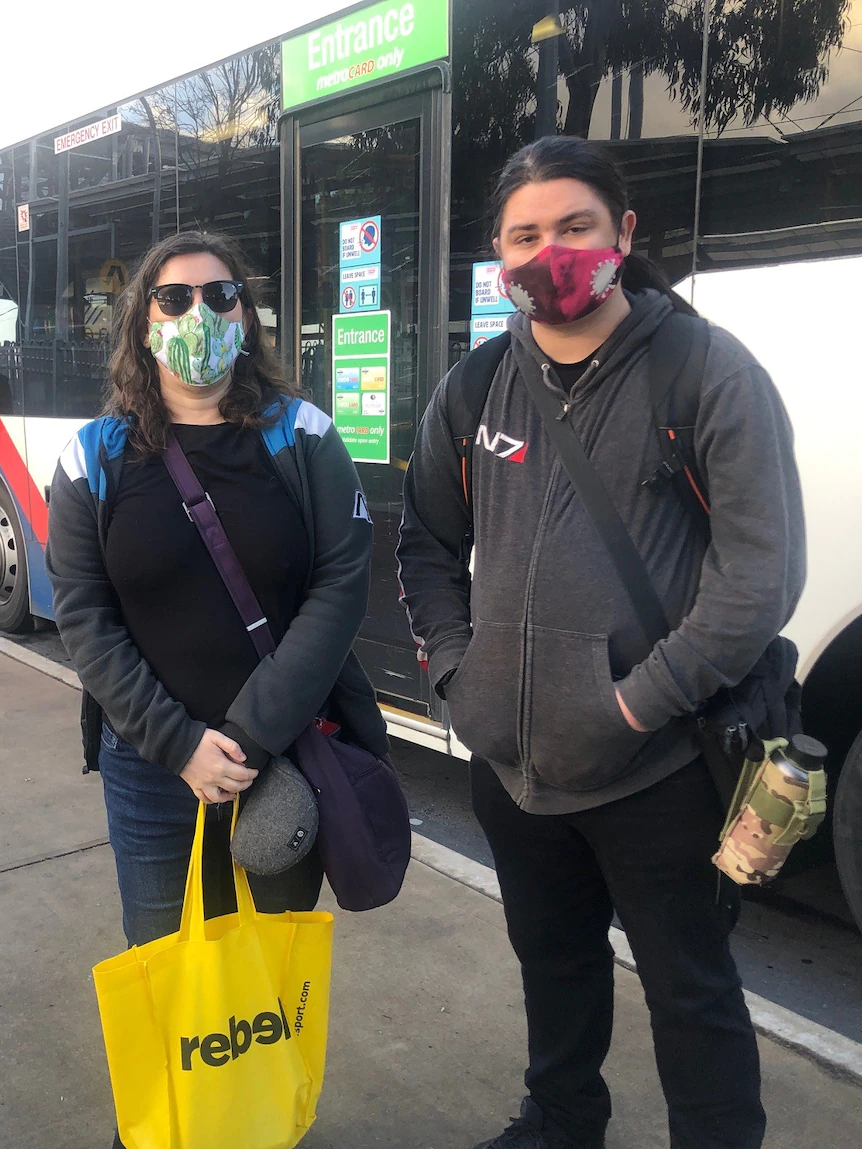The number of complaints per 100,000 journeys on Adelaide’s public transport system has risen again with passenger numbers increasing as people return to the city’s buses, trains and trams.
Key points:
- Public transport complaints have reached a record level in Adelaide
- Most complaints are about buses but the biggest increase has been among train users
- Gawler train line commuters are angry at delays to electrification work
The rate of complaints — 16.57 per 100,000 boardings — is the highest since Department for Infrastructure and Transport (DIT) data was made public five years ago.
The biggest increase in complaints over the past three months was among passengers of Adelaide’s train system, which has been run by the private company Keolis Downer since January.
However, the vast majority of complaints in April, May and June were about Adelaide’s buses, which take the largest proportion of public transport users.
The rate of complaints was also up in January–March, which DIT blamed on Gawler train line commuters being forced onto substitute buses during electrification work and buses being late because of traffic and construction work.
The percentage of buses and trains arriving on time has fallen since January.
The worst performing routes were the Belair train and buses within the East-West service area, run by Torrens Transit.
Almost all trams arrived on time.
Boardings increased from 13.3 million in January–March 2021 to 13.9 million in April–June, still well down from the peak of more than 20 million in spring of 2019, before the coronavirus pandemic.
Complaints centre around Gawler line
Transport Minister Corey Wingard revealed last week that work to electrify the Gawler line would extend into 2022.
The cost of the project has also blown out by $100 million.
ABC News
)Mr Wingard yesterday said it was “a vital project that we must deliver” despite the inconvenience caused by the substitute buses.
“Commuters in the north have been teased with this project for years and the Marshall government is getting on with getting it done,” he said.
“We’re also hearing customers complain about having to QR code check-in and wear masks on public transport but these are unprecedented times and these measures are about keeping our state safe.
Gawler resident Tyson Moseley said the substitute buses had been “frustrating” for commuters.
“I think not having the train service for so long and so many delays has definitely had an impact on a lot of people who live along the train line or in the northern suburbs,” he said.
Jake Sammut said the buses were much more dangerous at night than the old diesel trains and claimed security guards were only located at stations, not on the buses.
“Since the privatisation … it’s a lot more dangerous,” he said.
“When someone’s drunk or belligerent on the bus — which happens — bus drivers barely care.
“All they can do is call and hope that someone will turn up when they stop at a station — that’s it.”
DIT said security guards were “deployed throughout the Adelaide Metro network”, including on substitute buses.
ABC News
)Pieta Delaney said the delay in reopening the train line was “bullshit”.
Keolis Downer said complaints about trains spiked in May, with passengers raising concerns about a technical fault, efforts to prevent fare evasion and crowding following football matches at Adelaide Oval as well as gripes about the Gawler line substitute buses.
Opposition transport spokesman Tom Koutsantonis blamed the train and tram privatisation for the increasing complaints.
“The Marshall Liberal government told South Australians privatisation was going to deliver better services; that clearly hasn’t happened,” he said.
“An elected Malinauskas government will implement our public transport policy by undoing the privatisation of our trains and trams and returning them to public control.”
Labor did not undo the privatisation of buses when it was in power between 2002 and 2018.




